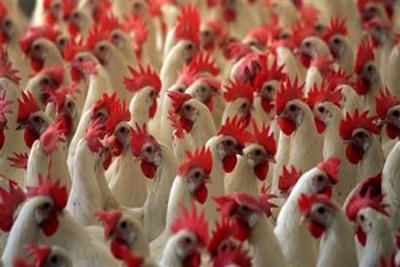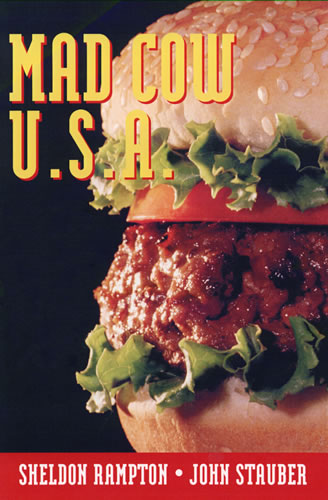The Higher Cost of Biofuels
Submitted by Judith Siers-Poisson on
A new study found that there is a higher health cost associated with corn-based biofuels than with traditional energy forms.

Submitted by Judith Siers-Poisson on
A new study found that there is a higher health cost associated with corn-based biofuels than with traditional energy forms.
Submitted by Judith Siers-Poisson on
 The European Union (EU) has drastically changed its course for the future of biofuels. Until this week, the EU planned to be the world leader in using biofuels as an alternative to petroleum-based fuel, aiming for 10% of transportation fuels to be derived from biofuels by 2020.
The European Union (EU) has drastically changed its course for the future of biofuels. Until this week, the EU planned to be the world leader in using biofuels as an alternative to petroleum-based fuel, aiming for 10% of transportation fuels to be derived from biofuels by 2020.
Submitted by Judith Siers-Poisson on
Democratic presidential candidate Barack Obama is on record as a big supporter of ethanol and has many ties with the industry.
Submitted by Judith Siers-Poisson on
 The U.S. Department of Agriculture has found that Tyson Foods routinely gave antibiotics to chicken it raised to sell as meat, and labeled it as antibiotic free.
The U.S. Department of Agriculture has found that Tyson Foods routinely gave antibiotics to chicken it raised to sell as meat, and labeled it as antibiotic free.
Submitted by Judith Siers-Poisson on
 Comprehensive information about what chemicals are sprayed on food crops just got much harder to come by. The U.S. Department of Agriculture recently announced that they will no longer conduct and publish annual national surveys of "which states apply the most pesticides and where bug and weed killers are most heavily sprayed to help cotton, grapes and oranges grow." The report is used extensively by farmers, environmental advocates, chemical companies and even the U.S. Environmental Protection Agency. Don Lipton, a spokesman for the American Farm Bureau, said "farmers will be subjected to conjecture and allegations about their use of chemicals and fertilizer. Given the historic concern about chemical use by consumers, regulators, activist groups and farmers, it's probably not an area where lack of data is a good idea." One fear is that information will only be available after there's been a problem. Steve Scholl-Buckwald of the Pesticide Action Network explained, "What we'll end up doing is understanding pesticide use through getting accident reports. And that's a lousy way to protect public health."
Comprehensive information about what chemicals are sprayed on food crops just got much harder to come by. The U.S. Department of Agriculture recently announced that they will no longer conduct and publish annual national surveys of "which states apply the most pesticides and where bug and weed killers are most heavily sprayed to help cotton, grapes and oranges grow." The report is used extensively by farmers, environmental advocates, chemical companies and even the U.S. Environmental Protection Agency. Don Lipton, a spokesman for the American Farm Bureau, said "farmers will be subjected to conjecture and allegations about their use of chemicals and fertilizer. Given the historic concern about chemical use by consumers, regulators, activist groups and farmers, it's probably not an area where lack of data is a good idea." One fear is that information will only be available after there's been a problem. Steve Scholl-Buckwald of the Pesticide Action Network explained, "What we'll end up doing is understanding pesticide use through getting accident reports. And that's a lousy way to protect public health."
Submitted by Judith Siers-Poisson on
 The global increase in grain prices may make the meat supply less safe. The European Union is considering a relaxation of feed bans that prohibit animal by-products being used as feed for other animals in the human food chain.
The global increase in grain prices may make the meat supply less safe. The European Union is considering a relaxation of feed bans that prohibit animal by-products being used as feed for other animals in the human food chain.
Submitted by Judith Siers-Poisson on
 The U.S. Department of Agriculture has been criticized for not totally banning "downer" cows -- animals "too sick or hurt to stand for slaughter" -- from the food supply. So "when a coalition of major industry groups reversed their position and joined animal advocates and several lawmakers in calling for an absolute ban," why wouldn't the USDA agree?
The U.S. Department of Agriculture has been criticized for not totally banning "downer" cows -- animals "too sick or hurt to stand for slaughter" -- from the food supply. So "when a coalition of major industry groups reversed their position and joined animal advocates and several lawmakers in calling for an absolute ban," why wouldn't the USDA agree?
Submitted by Judith Siers-Poisson on
 The biotechnology industry has invoked the need for genetically modified (GM) crops to meet the growing global food crisis.
The biotechnology industry has invoked the need for genetically modified (GM) crops to meet the growing global food crisis.
Submitted by Sheldon Rampton on
"A pair of agriculture groups has temporarily suspended about $1.5 million in grants to the University of Minnesota to protest a controversial study by U scientists earlier this month about biofuels and global warming," reports Tom Meersman.
Submitted by Anne Landman on
A new "grassroots" farmers' group with close ties to Monsanto has been formed to outlaw labels that would notify consumers they are buying milk from cows not treated with recombinant bovine growth hormone (rBGH). Monsanto genetically engineers rBGH, called Posilac, which is injected into cows, forcing them to produce more milk.
Center for Media and Democracy (CMD)
520 University Ave, Ste 305 • Madison, WI 53703 • (608) 260-9713
CMD is a 501(c)(3) tax-exempt non-profit.
© 1993-2025